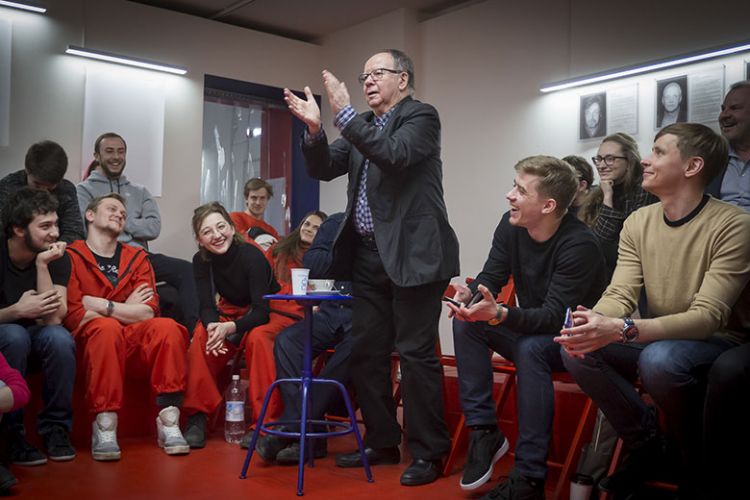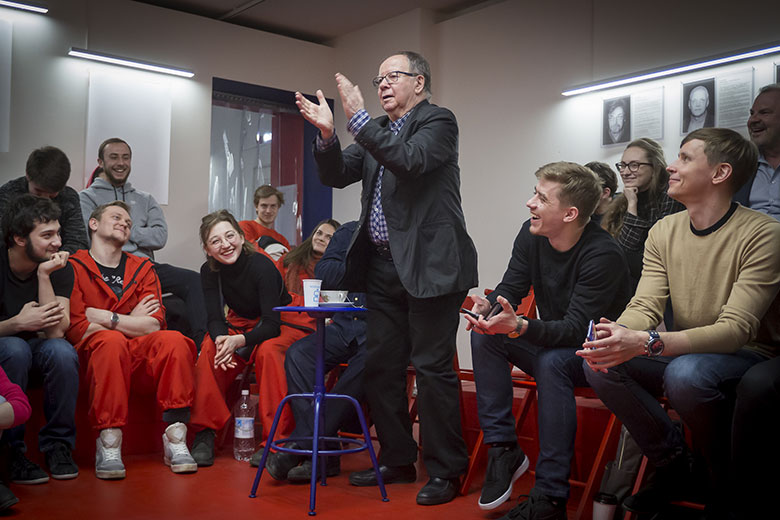Developing performing arts students for the stage

GITIS fosters a compositional way of thinking and holistic approach in its teaching of directing skills
What makes a good theatre director? Sergey Zhenovach, head of the drama directing department at the Russian Institute of Theatre Arts (GITIS), believes that it requires a specific mindset: a “compositional way of thinking” that is nurtured and developed through teaching.
Professor Zhenovach graduated from GITIS, where he studied under the great Pyotr Fomenko, in 1988. He has since divided his time between teaching and directing, staging works by Chekhov, Ibsen and Shakespeare, and winning a Golden Mask for Ostrovsky’s Truth is Good, but Happiness is Better at Russia’s national theatre awards. He sees directing as the ability to look beyond the scene, to think deeper about the performance, the text and the production.
“Acting skills can be learned during the course of studying and while working with other actors,” Professor Zhenovach says. “The most important thing is to have a directing way of thinking. One must have many different qualities, but most important is the structure and feeling of the whole. One must tune oneself for the following idea: when a theatre becomes not only a part of your life but your destiny, and you cannot live and breathe without theatre. You must work on yourself.”
The students accepted onto GITIS’ directing programme all have this way of thinking, and they all have the talent. Developing it is “a process of mutual enrichment” for the student and the institute, Professor Zhenovach explains. “I am always fascinated with the students’ talents and want just to help them to express what they already have.”
Professor Zhenovach acknowledges that the life of the director is uncertain and that students must ultimately believe in themselves and commit to the uncertainty. After a rigorous teaching programme in an environment where students can stage performances, such as at GITIS, this uncertainty should seem a little less daunting.
One of the most important freedoms a director must have is the licence to experiment with no expectation of success, to make mistakes. This is where GITIS’ theatre institute is invaluable. Many have assumed the role in experimental studio theatres, where new ideas can be workshopped and the art can be pushed further. “Sometimes a failure teaches us a bit more,” says Professor Zhenovach. “That is why now the most interesting works of youngsters are their diploma performances.”
GITIS has eight faculties: acting, directing, musical theatre, variety show theatre, ballet, producing, set design, and theatre history and criticism. Collaboration between these faculties is invaluable for enhancing its student experience. After all, theatre is a collaborative art. “We have united not only actors and directors but set designers too,” says Professor Zhenovach. “The earlier people of these professions meet, the better they realise that they can’t work at the theatre without each other.”
Find out more about GITIS.
